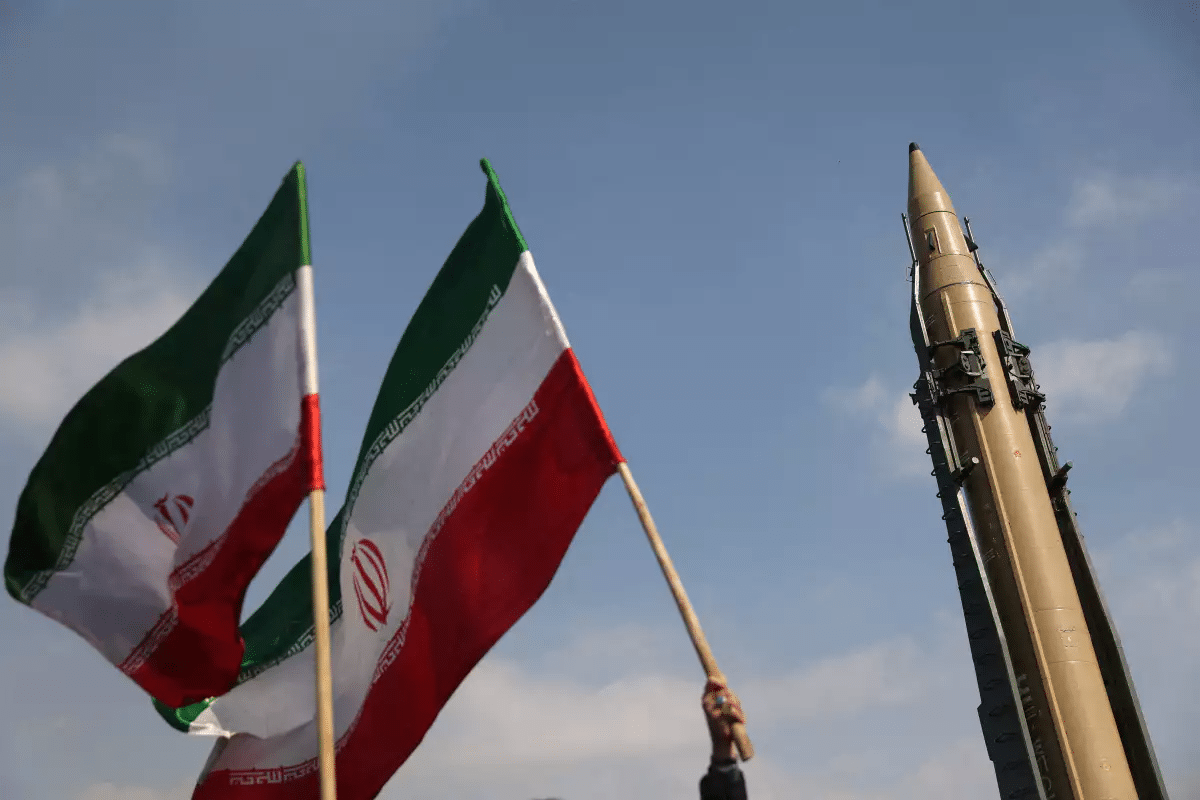Is Israel being sidelined? US President Donald Trump and Saudi Crown Prince Mohammed bin Salman are likely to agree on several critical regional issues at their meeting next month – but according to Saudi and American sources, Israel will not be involved in these understandings.
A senior Saudi diplomatic official told Israel Hayom that it has been clear to Riyadh for many months that Prime Minister Benjamin Netanyahu prefers to continue cooperating with his coalition allies rather than pursue a regional accord or a solution to the Gaza issue, and to the Palestinian question more broadly. "This doesn't necessarily mean continuing the fighting," the official said.

"It is clear to us that Hamas' military wing poses a danger not only to Israel and must be removed from the picture, and that the Gaza Strip must be demilitarized. But Netanyahu is allowing far-right ministers to eliminate any possibility of a post-war solution that requires Palestinian involvement and would serve as a stepping stone toward resolving the Palestinian issue entirely. This is reflected in practical steps taken by ministers such as Bezalel Smotrich, who is pushing for a reoccupation of Gaza, renewed settlement construction, expansion of existing settlements, and authorization of new outposts. It's also evident in actions taken by National Security Minister Itamar Ben-Gvir on the Temple Mount, where Netanyahu allows him to alter the status quo with publicized visits and provocative prayer activity."
The Saudi official added, "When Ben-Gvir exited the government and Trump was elected, we saw renewed hope. But Netanyahu's insistence on bringing Ben-Gvir back showed us he prefers him over a potential new regional framework – one we were very close to finalizing in the fall of 2023, before the war broke out."
A mega-deal in the making
Trump is pushing for a "mega-deal" – a grand agreement to resolve several regional disputes and promote international cooperation. The Saudis are seeking a defense pact and plan to announce a $600 billion investment in the US. This would serve as the framework for the upcoming talks. The war in Gaza has become an obstacle to realizing this vision. While Trump views Hamas as the primary obstacle and seeks to end the conflict, he will not hesitate to proceed with the Saudi plans even without Israel's involvement if the war does not end soon.

"Israel's security comes first"
An American official confirmed that in recent high-level discussions between the US and Saudi Arabia, Riyadh scarcely referred to Israel as a necessary partner or a party worth consulting.
Nonetheless, the Trump administration clearly prefers for Israel to be involved. US officials – primarily Secretary of State Marco Rubio – are working to formulate a framework that would at least partially include Israel in the emerging agreements. On the security front, all parties, including the Saudis, want Israel involved, given its superior technological and military capabilities. According to the American official, it is understood that in any agreement or cooperation, Israel's security comes first, and the US will prevent any scenario that could endanger it.
However, the Saudis understand that the inclusion of Ben-Gvir and Smotrich in the government effectively blocks any compromise on the Palestinian issue. A potential agreement with the Saudis would only be viable with a coalition shift or support from opposition parties such as the National Unity Party or Yesh Atid. Based on Saudi analysis, Netanyahu seems to have chosen his right-wing coalition over a landmark deal – and Riyadh will not wait for him to seize the opportunities presented by Trump's second term.
Israel's strategic advantage
The Saudis, who supported the signing of the Abraham Accords between Israel, the United Arab Emirates and Bahrain, had been waiting for their own opening. Their condition was a diplomatic horizon for two-state negotiations. In talks with the Americans, they were willing to settle for an expanded Palestinian autonomy and were openly critical of the Palestinian Authority's corruption and inefficiency.
The drive for normalization was rooted in security. Israel had demonstrated its capabilities against Iran – the most tangible threat to Saudi Arabia. The 2015 nuclear agreement signed by the Obama administration and European countries with Iran convinced Riyadh that Israel was its only reliable partner.

The US's lack of response during Trump's first term to the 2019 Iranian-backed Houthi attack on Saudi oil facilities further aligned Riyadh with Jerusalem. Secret talks were held, including a visit by Netanyahu and then-Mossad chief Yossi Cohen to the planned Saudi city of Neom in November 2020, where they met directly with bin Salman.
In 2023, following the establishment of Netanyahu's current government, the Saudis sought assurance that Israel still backed the previous understandings and was ready for normalization. Israel responded affirmatively, and negotiations were set to conclude within months. The war, however, halted the process – perhaps intentionally.
The Saudi shift
The war placed Saudi Arabia in a delicate position due to intense Arab criticism over the toll on Gaza. The Saudis remained restrained for a long time, but in November, the crown prince signaled a shift. Bin Salman accused Israel of committing "genocide" in Gaza – an unusually harsh term for him – and demanded an end to the war and the establishment of a Palestinian state alongside Israel.

A bombshell came during Trump Energy Secretary Chris Wright's visit to the Gulf. Wright announced that the US and Saudi Arabia were nearing a preliminary agreement on nuclear energy cooperation. Riyadh has long aspired to enter the nuclear field, citing both the Iranian threat and real civilian needs. Israel has opposed this.
During normalization talks, the Americans proposed building a civilian nuclear facility in Saudi Arabia that would be operated, managed and secured exclusively by Americans. But in light of Wright's announcement, it now appears the issue is advancing independently of Israel's position – a departure from past protocol.

Simultaneously, Saudi Arabia is also engaging with Iran to try to neutralize the threat from Tehran. It has publicly praised the opening of Iran-US negotiations in Oman and expressed hope for their success.




